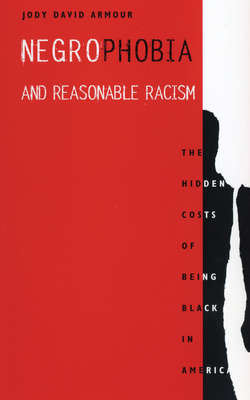Читать книгу Negrophobia and Reasonable Racism - Jody David Armour - Страница 18
На сайте Литреса книга снята с продажи.
Why Rational Discrimination Is Not Reasonable
ОглавлениеThe most readily apparent objection to the reasonableness claim of the Bayesian challenges the statistical method he employs to assess the victim’s dangerousness. Neither private nor judicial judgments about a particular member of a class, the argument goes, should rest on evidence about the class to which he or she belongs. Despite the attractiveness of this principle, and occasional court admonitions to avoid statistical inferences about individuals, private and judicial decision makers routinely rely on statistical evidence to judge past facts and predict future behavior. Lenders use statistics concerning age, marital status, location or residence, income, and assets to predict whether a borrower will repay a loan. Parole commissions may also use statistical techniques to predict parole success, considering factors such as number of prior convictions, type of crime, employment history, and family ties. And courts consider nonindividualized statistical probabilities when deciding whether to allow injured litigants to use epidemiological proof of causation in their lawsuits.
To accept the usefulness of statistical generalizations as a general matter, however, is not to agree that such generalizations are appropriate everywhere. For the use of statistical generalizations entail significant social costs, notwithstanding obvious benefits to defendants. The fatal flaw in the Bayesian’s argument lies in his failure to take account of the costs of acting on his racial generalizations. Instead, he assumes that the rationality of his factual judgments is all that matters in assessing the reasonableness of his reactions. Thus, he asserts that if racial identity incrementally increases the likelihood that an ambiguous Black man is about to attack (i.e., if it incrementally bolsters the accuracy of his factual judgment that he is under attack), then it is reasonable for him to use deadly force against the Black more quickly than a similarly situated White. Whether a reaction is reasonable, however, hinges not only on the rationality of its underlying factual judgments, but equally on the consequences of error if those factual judgments are mistaken.
Consider one example of the injustices that lurk in the Bayesian’s lopsided attention to rationality. Ira Glasser of the American Civil Liberties Union tells the story of a Black couple who, some years ago, took in a movie in Times Square. It was raining when they came out of the theater about 11 P.M., so the husband went by himself for the car, which was parked in a garage several blocks away. When he returned to pick up his wife, she had disappeared. The man eventually discovered that his wife, who was five months pregnant, had been arrested by the police, put in jail, strip-searched and booked on charges of loitering for the purpose of prostitution.
The arresting officer in this shocking incident may well have viewed himself as an Intelligent Bayesian. Perhaps wrongly, let’s assume that at the time he made the arrest, there was a high incidence of prostitution in Times Square, most of the prostitutes were unescorted women, a disproportionate number of them were Black, and most transactions occurred between 10 P.M. and 2 A.M. The officer might assert that, from his standpoint, there was significant evidence to support his factual judgment that the woman was a prostitute—she was a woman, Black, unescorted, and in Times Square at 11 o’clock at night. Even if we assume that his belief was rational in the sense that there was factual support for it, his decision to act on this belief in the way he did was patently unreasonable, not to mention outrageous and reprehensible. The reason his actions were unreasonable is because the costs of potential mistakes were so grievous. Given the enormous costs of potential mistakes, we rightly condemn him for not doing more to reduce the risk of being mistaken before subjecting this woman to such treatment. Many of us may express our concerns about the terrible costs of being wrong in this situation as doubt about whether the officer’s factual judgments were rational. But, upon careful reflection, we see that we are really saying that given the potential for mistakes and the terrible consequences of his mistake, the actions of the officer were unreasonable, even if his factual judgment was rational in the sense that there were circumstances to support it.
